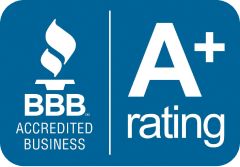Find the Best affordable
Medicare Plan



Andrew Smith
Who Qualifies for Medicare Benefits?
Who Qualifies for Medicare Benefit: You must be a U.S. citizen or a permanent legal resident for at least five years to be eligible for Medicare Part A and Part B. For Medicare eligibility, you must also meet at least one of the following requirements:
- When you reach the age of 65 and become eligible for Social Security, you may be automatically enrolled in Medicare Part A (hospital insurance). However, if you are not getting Social Security or Railroad Retirement Board benefits (for example, because you are still working), you must enroll in Medicare Part B when you reach the age requirement, as registration is not automatic.
- Be permanently handicapped for at least two years and obtain disability benefits: After receiving disability benefits from Social Security for 24 months or certain disability benefits from the Railroad Retirement Board (RRB) for 24 months, you are automatically eligible for Part A and Part B.
- If you have the end-stage renal disease (ESRD) (permanent kidney failure requiring dialysis or a kidney transplant), you must enroll in Medicare because it is not automatic.
- If you have Lou Gehrig’s disease (ALS, or Amyotrophic Lateral Sclerosis), you’ll earn Part A and Part B the month your disability benefits start.
Most people don’t have to pay a Medicare Part A premium if they or their spouse paid Medicare taxes for at least 10 years while working (or 40 quarters). In 2022, if you are not eligible for the premium-free Part A, you will be required to pay a monthly premium of up to $499.
Who qualifies for premium-free Medicare Part A?
You must additionally pay the Part B premium on a monthly basis. In 2022, the usual premium will be $170.10.
Also, take in mind that those with a greater income may be required to pay a higher Part B premium. If you don’t sign up for Medicare Part B when you first become eligible, you may be charged a 10% penalty (added to your monthly premium) for each complete 12-month period during which you could have had it but didn’t (some exceptions apply).
Medicare Part C (commonly known as Medicare Advantage) is a supplement to your Part A and Part B coverage. Medicare Advantage plans are offered by private insurers who have been approved by Medicare. You must be enrolled in Medicare Parts A and B and live in the service area of the Medicare Advantage plan you want to join to be eligible for Medicare Part C. Contact a licensed insurance agent or broker, such as eHealth, for further information and to enroll in a Medicare Advantage plan.
The Initial Coverage Election Period for Medicare Advantage plans (Part C) is essentially the same as the Initial Enrollment Period for Medicare Part A and Part B. (the seven-month period that starts 3 months before the month you turn 65, includes the month you turn 65, and ends 3 months after the month you turn 65). You can also sign up for coverage beginning January 1 of the next year during the Annual Election Period (AEP), which runs from October 15 to December 7. If you qualify, you can also enroll during a Special Election Period (SEP).
Please be aware that if you have the end-stage renal disease (ESRD), there is a change you should be aware of. If you have the end-stage renal disease (ESRD) and fulfill the standard requirements, you may be eligible for a Medicare Advantage plan starting in 2021.
Part C of Medicare is optional, and there is no penalty for not enrolling. To access Part C, you must have Medicare Parts A and B and live in a Medicare Advantage plan’s coverage area.
Even if you enroll in a Medicare Advantage plan, you must continue to pay your Part B payment if you have Medicare Part C. The insurance provider you choose and the precise plan parameters determine monthly costs and plan coverage for Medicare Advantage plans.
Who Qualifies for Medicare Part D?
Medicare Part D, like Medicare Part C, covers prescription medications and is only available through Medicare-approved commercial insurers. You must have Medicare Part A and/or Part B and live in the service region for the prescription drug plan you want to join in order to enroll in a Medicare Part D prescription drug plan (PDP). You must have Medicare Part A and Part B, as well as live in the MAPD plan’s service region, to be eligible to enroll in a Medicare Advantage plan with prescription medication coverage (MAPD).
Medicare Eligibility Requirements
As there is a lot of information to take in, we’ve summarized it here in case you’re wondering, “Do I qualify for Medicare?” If you meet the following criteria, you are eligible:
- You’ve reached the age of 65.
- You’re a kidney donor or a dialysis patient.
- You are currently receiving Social Security or Railroad Retirement Board benefits, or you are eligible but have not yet begun receiving them.
- You or your spouse worked for the government and had Medicare coverage.
Medicare Eligibility Questions
Q: Who isn’t covered by Medicare?
A: Those who do not match the above-mentioned qualifications, such as being of legal age and having previously been eligible for Social Security or Railroad Retirement Board benefits.
Q: What is the best way for me to get in touch with someone about my eligibility?
A: You can create an online Medicare account HERE or contact 1-800-MEDICARE if you have questions regarding Medicare (1-800-633-4227). For TTY users, dial 1-877-486-2048.
Q: What is the maximum income for Medicare eligibility?
A: There are no income limits for eligibility, though you may pay higher rates and may not be eligible for premium-free Part A if your income is higher.
Q: Do the qualifying requirements for Medicare Parts A and B differ?
A: If a person qualifies for premium-free Medicare Part A, he or she will be eligible for Medicare Part B. As a result, if a recipient pays Part A premiums and wants to enroll in Part B, they must meet the following requirements:
65 years old or older
US citizen and/or residence
Before the month of Medicare filing, you must have been a lawfully admitted aliens to the United States and have lived here for at least 5 years.
Q: Do I get full coverage if I’m qualified for Medicare?
A: While there are no Medicare coverages that cover everything, you may be eligible for reimbursement options like the Prospective Payment System, which can refund some of your costs.
Sources:
https://www.hhs.gov/answers/medicare-and-medicaid/who-is-eligible-for-medicare/index.html
https://www.aarp.org/health/medicare-insurance/info-04-2011/medicare-eligibility.html
https://www.cms.gov/Medicare/Eligibility-and-Enrollment/OrigMedicarePartABEligEnrol
More to explorer

What Is Medicare?
Medicare is a federal health insurance programme for those who meet the program’s requirements, such as those who are 65 or older,

How are Medicare benefits changing in 2023?
Medicare Part A will increase by a small amount in 2023, while Medicare Part B and Medicare Advantage will decrease in price.

Medicare vs. Private Health Insurance: How Do You Choose?
You’re not the only one who will soon be 65 but isn’t prepared to retire. Twenty percent or so of Americans over

